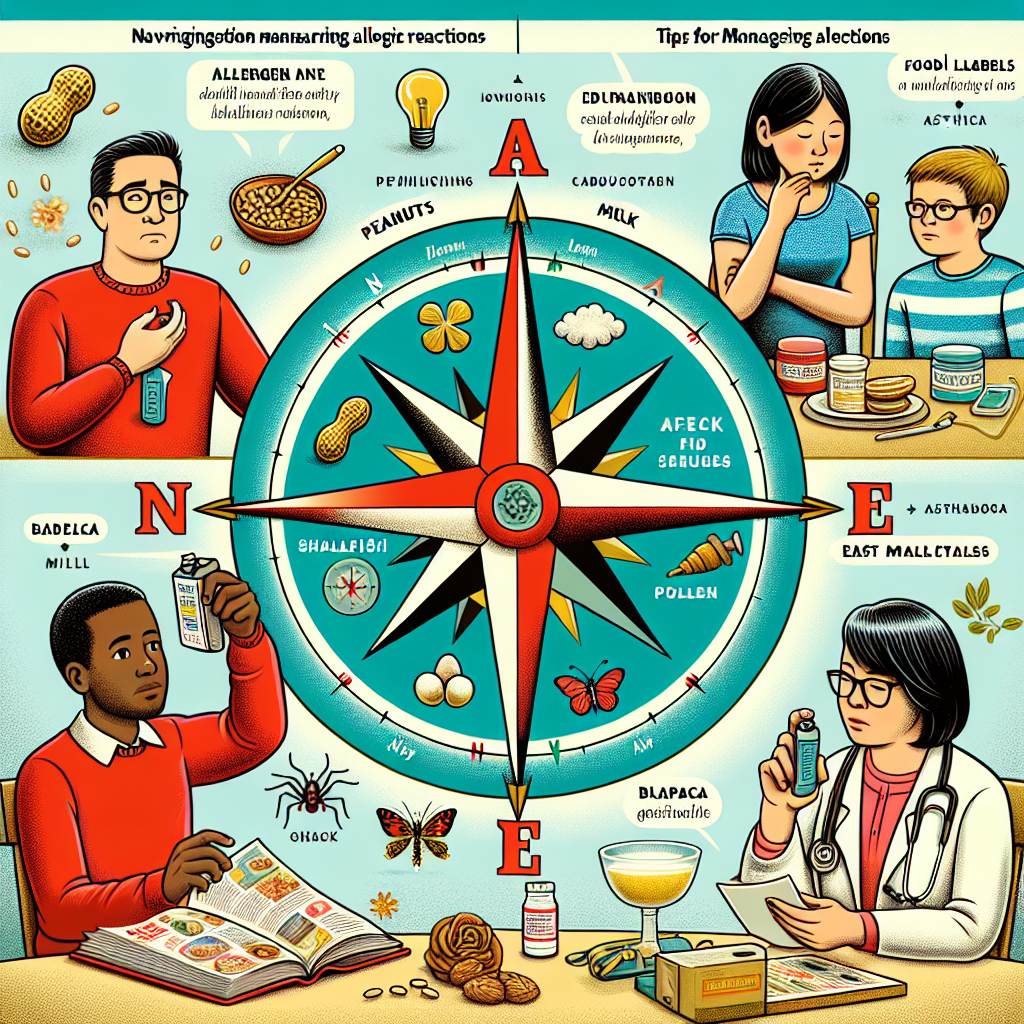Introduction
In our increasingly interconnected world, allergic reactions have become a widespread concern that affects millions of individuals. Whether it’s pollen making you sneeze during spring or a nut causing serious health issues, navigating sensitization can often feel overwhelming. Understanding how to manage allergic reactions is not just important—it’s essential for leading a fulfilling life. In this article, we will unravel the complexities of sensitization and provide actionable tips for effectively managing allergic reactions, ensuring you stay safe and healthy.
Understanding Allergic Reactions
What is an Allergic Reaction?
An allergic reaction occurs when the immune system mistakenly identifies a harmless substance (allergen) as a threat. This triggers an immune response that can manifest in various symptoms, ranging from mild irritation to severe anaphylaxis.
Common Allergens:
| Allergen Type | Examples | Symptoms |
|---|---|---|
| Food | Nuts, shellfish, dairy | Hives, swelling, nausea |
| Environmental | Pollen, dust mites, mold | Sneezing, itching, asthma |
| Insect Stings | Bee stings | Pain, swelling, anaphylaxis |
| Medications | Antibiotics, NSAIDs | Rashes, breathing issues |
How Allergic Reactions Develop
Allergic reactions typically develop in stages:
- Sensitization: Exposure to an allergen for the first time sensitizes the immune system.
- Subsequent Exposure: Re-exposure triggers an immune response, resulting in various symptoms.
- Management and Prevention: Understanding how to anticipate and respond can significantly improve quality of life.
Navigating Sensitization: Tips for Managing Allergic Reactions
1. Know Your Allergens
Knowledge is power when it comes to navigating sensitization. Identify what causes your allergic reactions through skin tests or blood tests performed by an allergist.
Case Study: Sarah’s Dust Mite Allergy
Sarah, a 30-year-old teacher, discovered through a blood test that she’s allergic to dust mites. With this knowledge, she was able to modify her living space—using allergen-proof covers for her bedding and maintaining a regular cleaning schedule. This proactive approach minimized her symptoms significantly.
2. Create an Allergy Action Plan
Having a structured Allergy Action Plan is critical. This plan should include:
- Identification of Symptoms: Familiarize yourself with mild and severe symptoms.
- Step-by-Step Response: Outline what to do in case of an allergic reaction, from using over-the-counter antihistamines to seeking emergency help.
- Emergency Contacts: List contacts such as family members, friends, or healthcare providers who can assist in emergencies.
3. Carry an EpiPen
For individuals at risk of anaphylaxis, carrying an EpiPen is non-negotiable. Here’s what to remember:
- Check Expiry Dates: Make sure to replace it before it expires.
- Training: Learn how to use it properly and ensure those close to you know how to administer it in case of an emergency.
4. Avoidance Strategies
Environment Modifications:
- Air Quality: Invest in air purifiers to reduce airborne allergens.
- Humidity Control: Keep indoor humidity below 50% to deter dust mites and mold growth.
Dietary Changes:
- For food allergies, always read labels carefully and communicate with restaurants about your allergies when dining out.
5. Medication Management
Stay informed about the medications that can help alleviate your symptoms:
- Antihistamines: Effective for mild reactions—know the difference between first-generation and second-generation antihistamines.
- Corticosteroids: Useful for more severe symptoms, but always consult your doctor before starting.
Using Technology to Manage Allergies
Allergy Apps
Several mobile apps can assist you in managing allergens effectively:
- Zyrtec Allergy Tips: Provides personalized recommendations based on local pollen counts.
- My Allergies: Enables you to track your symptoms and identify potential triggers.
Wearable Devices
Wearable technology can monitor environmental conditions and even alert you to potential allergens in your vicinity.
Case Study: Tom’s Use of Wearable Tech
Tom, an outdoor enthusiast, began using a wearable device that provided real-time pollen counts. This allowed him to plan his hikes during lower-pollen days, significantly reducing his allergy symptoms.
Real-World Challenges in Allergy Management
Facing Social Situations
Attending gatherings can be challenging when allergens are involved. Here are some tips for navigating these social scenarios:
- Communicate: Let your host know about your allergies ahead of time.
- Bring Your Own Food: This ensures you have safe options readily available.
Traveling with Allergies
When traveling, preparation is key:
- Research: Investigate your destination for common allergens.
- Access: Know the location of the nearest hospital in case of an emergency.
Conclusion
By taking proactive steps to navigate sensitization, you can significantly reduce the likelihood of allergic reactions disrupting your life. Understand your allergens, create an action plan, utilize technology, and involve those around you. With the right knowledge and tools, managing allergic reactions becomes a manageable part of life, allowing you to enjoy all its experiences fully.
FAQs
1. What should I do if I experience an allergic reaction?
Start by identifying the allergen, remove yourself from exposure if possible, and treat symptoms with antihistamines or an EpiPen as prescribed. Seek medical attention if symptoms worsen or do not improve.
2. How can I identify hidden allergens in food?
Always read ingredient labels carefully, and when in doubt, ask restaurant staff about ingredients, preparation methods, and potential cross-contamination.
3. Can allergies develop later in life?
Yes, it is possible to develop allergies even in adulthood. New sensitivities can emerge due to changes in environment or immune system function.
4. Is desensitization therapy effective?
Desensitization therapy has been shown to be effective for many individuals. Consult with an allergist for personalized advice on whether this option is right for you.
5. How do I create an allergy action plan?
Work with your healthcare provider to outline potential symptoms, response strategies, emergency contacts, and a clear set of actions to take in various scenarios.
Navigating sensitization is not just about avoiding reactions—it’s about empowering yourself to live life fully. Equip yourself with knowledge, tools, and a strong support system, and you will successfully manage your allergies.

